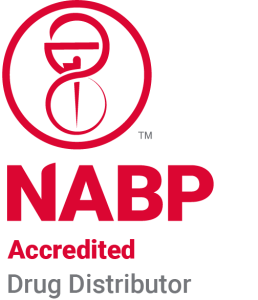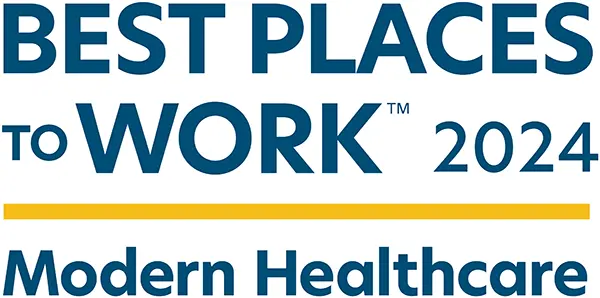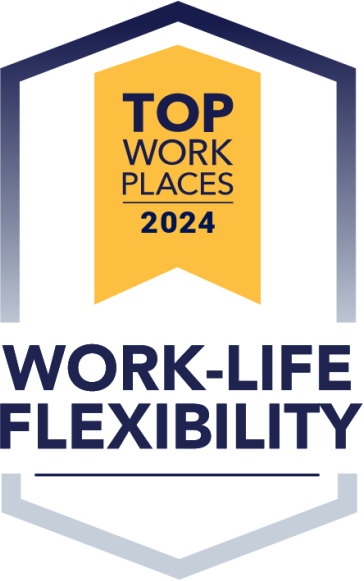In this episode Todd Eury hosts a discussion between Debbie Marcello, the founder of Happier at Home, and Kelli Stovall, Vice President of Pharmacy Services at IPC as they discuss the challenges facing independent pharmacies and the need for diversification beyond traditional dispensing. Together they highlight the role of IPC in supporting pharmacies with various programs and vendor partnerships, including Happier at Home, to enhance patient care and business operations. The conversation also touches on the potential of digital health platforms, remote patient monitoring, and the importance of marketing in reaching out to the community. Listen as Debbie and Kelli talk about the transformation of pharmacies into healthcare hubs, providing extended care and services to their communities.
Transcript
Voice Over 1 (00:06):
You are listening to the Pharmacy podcast network.
Voice Over 2 (00:26):
Ever since Covid, what we know to be the norm is rapidly changing. In order to adapt to this, your business must adjust and transform accordingly. For pharmacies unlocking the profession’s potential to improve patient care is where this opportunity lies. Today’s product focus role of the pharmacist calls for the industry to move toward clinical services. The focus will be on prevention over treatment and care will happen in the home or community. As accessible and trusted healthcare personnel, pharmacists can play a big role. Happier at Home harnesses this opportunity by showing the benefits of expanding your pharmacy into home care services and how this is a recipe for success. Innovation and growth will help community pharmacies to continue to exist and thrive in the future.
Todd Eury (01:07):
Hey, welcome back to Happier at Home. PRM is part of the Pharmacy podcast network. I was just saying to Debbie, my goodness, it’s been, this is our 14th episode together. It’s so exciting to see.
Todd Eury (01:21):
The content that you’re pushing out, but more importantly, our community pharmacy owners are reacting and engaging with you and they’re growing their business through Happy Homes. So hello, Debbie. How are you?
Debbie Marcello (01:34):
Hello. I’m doing great and a lot of exciting things on the horizon, A lot of exposure to more and more pharmacy owners and I’m really excited about it and I’m enjoying meeting and talking to so many people on the podcast too.
Todd Eury (01:54):
Well, Dr. Kelly Stovall is no stranger to Independent Community Pharmacy. She’s been a member of IPC for over eight years. IPC Independent Pharmacy Cooperative has been around for 40 years. They started out long time ago in Madison, Wisconsin with right around a dozen pharmacy owners that really wanted to do something different. They weren’t getting the throughput from some of the existing groups that might’ve been out there. And they said, what if we were to come together and we actually owned and grew together because of all the collective knowledge that one pharmacy owner can share with the other. And that’s so important to have teams of people that you can reach out to and trust and say, Hey, pharmacy owner in Pittsburgh, Pennsylvania versus pharmacy owner over in Madison, Wisconsin, what’s going on? How can I improve profits or what can I do differently or how can I market differently? That’s the strength of this group. I’m so proud of them. I was saying before we started recording, I get to double dip today because I get two people on that work with the Pharmacy Podcast Network, so I’m so proud of that. Kelly, and you and I had time at the NCPA 2023, and I just love working with your team. Shout out to Matt Tompkins who’s under the weather right now, but it’s good to have you here.
Kelli Stovall (03:17):
Thank you. I’m happy to be here. I agree. I’m proud of IPC and what we help our stores do on a daily basis. I’m passionate about independent pharmacy and it’s really a perfect fit.
Debbie Marcello (03:34):
Very good. That is exciting that you’re part of the Pharmacy podcast network, so congratulations. Very good. And so as the vice President of Pharmacy Services, can you tell those that really aren’t familiar with IPC, what the benefits to pharmacy owners are really what IPC is all about?
Kelli Stovall (04:00):
So IPC is a buying group and as Todd mentioned earlier, we’ve been in business for over 40 years now and with our customer base of only independent pharmacies, we help help from purchasing, we help in other areas like setting up clinical services, which we may talk about a little bit down the road, but really we look at the pharmacy business as a whole and try to touch every aspect of how we can help them optimize their business.
Debbie Marcello (04:30):
Very good. We came to talk with each other because your CEO came to me when I was at last year’s multiple location conference and he wanted to learn more about happier at home and what we can provide for independent pharmacy owners. And since then with our conversations and our discovery about each other, each of our businesses Happier at home has become one of IPC’s preferred vendors. So I’m really excited about that. We’re just kind of getting traction with that and having your members learning more and more about Happier at home and how we can help them as well. So I’m excited about that and really happy to work with you and your entire team.
Kelli Stovall (05:26):
We are really excited about that as well. I grew up in a small town in rural Arkansas and really could see how pharmacy is the healthcare hub of community and the extra care that’s needed in areas, underserved areas is just astronomical now and happier at Home is really primed to take care of so many of the long-term care health needs for patients in areas that may be underserved, may be underinsured. And so we’re really excited to partner with you, Debbie.
Debbie Marcello (06:02):
Thank you. You bring up a good point about those that are underinsured. Underserved. One of the things that I hear from some of the pharmacy owners is they’re worried people won’t pay for the Happier at Home Services. I wanted to actually touch on that because I’ve heard it over and over again. However, me being in this business since 2007, the key is to look at what the alternatives are for your community. If they’re not able to stay independently at home, then they’re needing to move to assisted living or a skilled nursing home, which is much more expensive than those services that they’re providing at home. So that is one of the things that we focus on. Of course, we are a cash-based business, so we give our pharmacy owners that own a franchise of Happier at home, that ability to capture private pay source of revenue, which also would include long-term care insurance as well and some of the other programs that we go through during training. But really pharmacies are really facing a lot of challenges. Dispensing medication is not cutting it anymore, so being able to really diversify is crucial for making sure you’re surviving, making sure you’re thriving and capturing other sources of revenue. So looking beyond just those traditional services, I know that our agreement, our relationship has been through our vendor agreement, a preferred vendor agreement. Can you talk about some other resources that you have through IPC that would provide these additional streams of revenue and diversifying?
Kelli Stovall (08:12):
Sure. We have several programs set up and vendors that work with stores to bring in additional, additional businesses that can help the store profit. We work with stores on immunization programs and here we work with three 40 B consultants. We have lots of out front items that stores can purchase that 50% where 50% margin out front, which is very helpful. We really try to look at whatever the need is in the industry and pull in a vendor that we feel is really top notch and will serve our members the best at vials. I see you scrolling through those vials, compression socks, just lots of different supplements and anything that will help our pharmacies. Bottom line.
Debbie Marcello (09:07):
Very
Todd Eury (09:07):
Good. A big differentiator, Debbie, when I look at IPC is the fact that these organizations that they partner with have already been tried out with the members that are now owners of IPC. So it’s almost like we’re trusting because someone else internally said, Hey, happier to Home is a quality organization. We’re going to list ’em on our website. We’re going to show our entire 6,000 plus members that these are trusted organizations that some of our members have done business with. So then those new members of IPC could reach out to a BC pharmacy in this. I think of Troy up in Albany, New York, reach out to Troy and say, Hey, talk to me about working with happy at home and how did you implement? How did you get going? What have been some of the roadblocks? What are the good things? What are the things that you would improve? And I think that kind of trust Kelly and Debbie is so important, especially today with the competitiveness and what our community pharmacies are going through right now.
Kelli Stovall (10:15):
I’m glad you pointed that out. We really have a extensive process really to vet the vendors that we do partner with and it sometimes takes longer. We wish it did, but it’s important. So the independent pharmacy owner knows that if it’s on our list then it’s reputable company. We feel like there’s a true opportunity for them in this process. With Debbie, I actually talked with, I currently live in Alabama and I talked with a store in Muscle Shoals, Florence area that had partnered with Debbie and part of his response was just fantastic. He shared with me what it meant for his business and how successful it had been. So that was really part of, that’s always part of our choosing our vendors.
Debbie Marcello (11:04):
I can speak from the other side that they do extensively validate their vendors in a good way. Kelly, I’m saying that of course I’ve really enjoyed getting to know your team, but I think that the IPC members then know that any of those businesses that are preferred vendors and listed on your website, they’ve been vetted. And definitely in my experience, our conversations have shown me personally how much you really care about your members over and over again. When we had conversations you said, I want our members to benefit. What is it that you could give us that will help our members benefit? So we have an agreement with IPC for some discounts if you become a franchisee. And of course that’s something they could reach out to yourself or to me. And certainly if anyone comes to me or contacts me, I’d like them to let us know that you are an IPC member so we could let Kelly know our communication is working and so we could get you those discounts as well. So thinking about your members, are there any streams of revenue that you’ve seen that are most successful that have been implemented into pharmacies that are members?
Kelli Stovall (12:43):
Yes, and I would say long-term care, even though, and I think it’s a great time to talk about it because it feels that it really supplies that patient demographic that can also be successful with that additional services that have your at home offer. But our stores that have become combination pharmacies and we’re really combination pharmacies to start with, which means they were filling retail scripts, but they were also serving some nursing homes or some assisted livings, some retirement centers group homes, but they were not being reimbursed differently for those bills. So bringing in the option and vendors that allow them to be combination pharmacies so they can get that better reimbursement on those prescriptions, those bills has made such a huge difference for so many stores out there. And a lot of times it’s stuff they’re already doing, they’re already qualified to be that. So bringing stores into that space has been very positive for revenue for many of our members.
Debbie Marcello (13:51):
Yeah, I’d say that long-term care at home medical at home model is really what’s on the horizon. And so if, like you said, so many pharmacies may be doing that already, they just need to know how to qualify and to capture that additional revenue, lesser GIR fees so they can thrive with that. This is one of the things that I love about Happier at home working with the independent pharmacies because if you think about it, if you are already doing some delivery and some long-term care at home, those are patients that you could capture and turn into patients of happier at home. And likewise, as you market and you build your happier at home care services business, then you have people at home that you could qualify as your long-term care at home patients as well. So they really work synergistically and hand in hand.
(14:58):
We have so much marketing that we do for our franchisees. When I go on to our local Fox News channel every week we have our short videos that we send out to our franchisees email campaign list. So if you’re a pharmacy owner and you have all of your customer base, we are able to get that email list and have you stay in front of your audience all the time by our videos each week. So it really working hand in hand with the pharmacy owners will help them to look at other programs too, like immunization programs, point of care testing, things like that. So if you’re looking at what kind of emerging trends you see on the horizon and maybe things that pharmacies can capitalize on to increase their revenue and diversify, what kind of future technologies perhaps do you see?
Kelli Stovall (16:10):
Well, and we’re really excited about a new program that we are rolling out with our digital health platform, iCare plus Digital Health. And it really brings the healthcare hub even more into the pharmacy. It has telemedicine, telehealth, pharmacy lot, remote patient monitoring and several other patient transport. A few other things that will really help pharmacies be that digital health space. We know from statistics with even younger generations, younger millennials, gen Z, that they turn to a digital health platform first normally, and we need to capture those patients that population for our independent pharmacies of the future because you need to build that relationship now. And so as they age and as they begin to take more medication, you have established that relationship with them. So in essence, we’re helping them build that population of the future for them as well.
Debbie Marcello (17:18):
So this is a home monitoring. Can it be things like weights for those that have congestive heart failure or diabetes screenings, finger sticks, that type of thing?
Kelli Stovall (17:33):
Yes, we do have a remote patient monitoring tool in the platform as well, and we have Bluetooth enabled devices that sync with that. So a patient can be monitored at home for weight, blood pressure, there’s a pulse socks and eventually also blood glucose. So there are many things that we can do and that automatically uploads into the platform, which really takes off some of the admin work on our pharmacies that may be in contracts with physician clinics to monitor certain patient populations.
Debbie Marcello (18:11):
Great. And do the owners of the pharmacies need to have either a physician or a nurse practitioner on staff for something like this?
Kelli Stovall (18:24):
So it requires in most states a collaborative practice agreement. And so with Medicare who often will contract a CO contracts with health systems, they need monitoring of certain patient populations and the pharmacy is in the prime position to do that because of really how close they are to all patients. I’m sure you’ve heard the statistic where nine out of 10 people are within five miles of a pharmacy, so it really helps with accessibility of care. So no, there does not have to be a nurse practitioner or a nurse on staff, but in most states it is required that you have a collaborative practice agreement with the health system.
Debbie Marcello (19:13):
And you brought up something earlier, you used the hub and spoke analogy, and I think that that goes right along with it, that accessibility to the community. So many people use the independent pharmacies and really have developed great relationships with them. So instead of piecemealing their care pharmacy owners, especially now as they’re looking at diversifying pharmacy owners are in this position of capturing their professionalism using their degree, their advanced degree to be able to serve the community in so many different ways. So I love seeing this with the remote patient monitoring and being able to bring that to the community as well.
Kelli Stovall (20:13):
I agree with you. I think a lot of times we think that pharmacies, it is important to step away from those traditional services and pharmacies are stepping away from only traditional dispensing and bringing in additional services. I think also that all the challenges they face, we also see all the challenges that our healthcare industry are currently facing and we’re currently facing a lot of challenges in our whole healthcare industry and pharmacies can be a part of the solution there. And when we look to that, I think that actually helps us align ourselves in that healthcare chain and also create opportunities then for revenue and reimbursement that will also help expand that pharmacy into the healthcare hub.
Debbie Marcello (21:09):
And I think sometimes it’s the mindset of that pharmacy owner or the pharmacist not to just be on the bench or behind the bench all the time to reach into the community and really understand what their needs are. So everything works cohesively together. The healthcare system you have, the relationships with doctor’s offices, those discharge planners, those that are in transitional care units, it can be so fragmented. So being able to put yourself into that whole system and it’s like fitting you and your pharmacy into a piece of the puzzle. So one example would be with transitional care units, if you are, you have those relationships perhaps through long-term care, your long-term term care dispensing. If you have that relationship, then you’re able to also show value if you are a happier at home business owner in that you’re going to help give a way for those patients to be discharged from the transitional care unit home in a safe way.
(22:31):
So safer discharge means less return back to the emergency department, less treatment within 30 days after discharge, which helps the entire healthcare system save money, certainly helps your referral partners save money and it increases quality of care. That’s what our whole goal is really to not have anyone feel like they’re out there on an island by themselves in their home and really, really help them. And then thinking about the independent living facilities, so many pharmacy owners that I speak with, they started developing relationships with these independent living facilities, even senior care apartments where they’re able to go in there and say, we can provide a medication compliance solution for you, which helps that independent living facility maintain their census. So you’re helping them as well. So while you’re in there providing this medication compliance aspect of it, you could be talking to them about remote patient monitoring.
(23:47):
Certainly if you have relationships or are in the process of developing those relationships, providing that home health services through happier at home helps them to stay and age in place as well. So like you said, it overlaps. There’s so many different things that you can do. I think that part of what keeps people or holds people back is being frozen and not knowing how to approach it. So with your relationships with the pharmacy owners, do you have the pharmacy owners coming to you and having those conversations, how can I get started in certain aspects or expanding into different revenues?
Kelli Stovall (24:40):
Yes, we do. And it’s very common for stores to reach out with those questions. What can I do next? How can I expand here? What opportunities are there that I may be missing out on? And I think one of the things that we always connect it to is an extension of care, and I think Happier at Home is a good example of that. So is our iCare plus platform. It’s an extension of the care that the pharmacist is already providing. So they have these LTC patients or they have customers, they may have a customer with parents that need additional help. And I think we also have to think about, we say uninsured and underinsured and sometimes there’s a perception that that means unable to pay and it does not. It’s a private payer. There can be people with deductibles that are too high for them to manage really small business owners.
(25:36):
Insurance is very difficult for small business owners and these options help them get the care needed for their loved ones in a way that they can be a private pay customer. And so the extension of care what you may, you’ve been taking care of Ms. Smith and her children for years and now you can recommend that she be taken care of additionally in an additional way. And I think that is really how we see our stores thrive is when they look at their business, they look at their patient demographics and how they can extend care to their patients in other ways. Obviously we want to build patient base, we want to have new patients, but we also want to continue to care for those patients for as long as we can while they’re home. And so I think we actually have those discussions with our independent pharmacy owners all the time.
Debbie Marcello (26:34):
That’s great. I was talking last week with Dr. Lisa FO and she talked about the couple pharmacies that she owns and not having that preconceived notion that people aren’t going to pay. We were talking about that because as I brought up earlier, it’s something that I hear, I know people pay, there’s a lot out there by way of private pay, but even looking at her pharmacies, she said that the less affluent area that she’s in pays more private pay for let’s say functional medicine type of supplements versus her more affluent area. So don’t just assume one of the huge benefit of Happier at home is it’s a proven business model. So the same things that I hear over and over again are the things that we solve for and that we’re able to actually help people and companies become successful in. So when I started Happier at Home, like I said back in 2007, I had the naysayers that said, ah, you’re never going to make any money.
(28:05):
And by how do you know that the numbers of seniors just continue to increase? If you look in the news now, they show that there’s article after article of more home care businesses being necessary because there just is not enough out there. So I think that people see competition and say, ah, I can’t do that. But when you are differentiating yourself as an independent pharmacy owner with all of these other things that you could help your community and your customer base with, you have to understand you’re in a unique position and the pharmacy owner should not ignore that. You have customers walking in your door every day, you have connections and a reputation. So make sure that you guys are capturing that, that’s golden. Just individuals trying to start a home care company don’t have that. You guys have that. So definitely capture that.
Todd Eury (29:29):
Yeah, the depths of service that are available to our community pharmacy owners, especially through IPC are layering. It’s layering. It’s okay, what can I do for my patient that’s needed? It isn’t necessarily a prescription, it’s not necessarily the dispensing fee. It’s something else I need to get my mother-in-Law monitored. I need digital health technology. I need the eyecare plans put into place, but I also need implementation. That’s another thing that I wanted to talk to both of you about. And that is it says right on the website and your business services, which is one of the things that we’re going to actually expand upon too, and that is questions from our pharmacy owners with how busy and stressed out they are. They want to know what services should I be offering in my specific community? One service might do better in a higher densely populated area versus another, so IPC, you’re going to be able to ask your IPC rep that and they’re going to take you through a way of calculating, so what should I be offering?
(30:39):
How do I make the operations more efficient? I know I have overhead, I have employees. I have insurance as a pharmacy owner that I have to pay out. How do I get more efficient and what I’m paying month after month after month to get more out of the dollars that I’m spending? And this is my favorite one, the next one. And that is how do I market my community services, my community pharmacy services as a differentiator from all the other services that are available through pharmacy care? And it really sticks out that Happier At Home is standing there saying, Hey, your community is in desperate need of additional home care services that come from a trusted source that these people already get it. They already know. And Debbie, we’re talking about 11,000 people a day turning 65 between now and December 31st, which is a record of, it’s a record time for the United States that that’s going to be the biggest explosion of our 65 year olds every single day now between now and December 31st, 11,000 new 65 year olds.
(31:45):
So that means if you prepare now IPC members, non IPC members that are looking for extra benefit from their buying groups and from their wholesalers and the strategy and masterminds with other pharmacy owners, this is why this is all making sense. And it’s almost like putting a puzzle to together, but that puzzle is customized to that pharmacy. Every puzzle is not the same. Everyone’s puzzle is going to look just a little bit different, but you have to have the pieces and you have to have people at IPC that can tell you, how do I implement this and actually make it work.
Debbie Marcello (32:24):
So I have to say that when someone or a business have all these ideas, you may write them down and say, oh my gosh, this is something I have to do. Especially after a conference, an educational conference, we come back and we have all these great ideas and then a year goes by and you say, man, I really wanted to get to that and I didn’t get to it yet. And I have to say, the pharmacy owners that are happier home franchise owners have said, I wish I just did it sooner. So part of what we’ve talked about before is getting that consultation, especially through IPC, making sure that you strategize, so do your planning, but know that you’re not on an island by yourself as an individual. You can’t do it all. But in the instance of happier at home, yes, you start the business as a pharmacy owner, but you have those that will be working for you to build that business. So my point is that you have these great opportunities. You can’t just let them sit because if you’re not moving forward, you are literally falling backwards. It’s like inflation. You have money in the bank, you’re losing money in the bank because of inflation. So you need to make sure that you’re not standing still and that you are reaching into the community and diversifying. If you look at the big box stores, they’re doing that.
(34:14):
They have a vertical into the home. They’re doing home care services like physicians house calls and that type of thing. So they see the writing on the wall as individuals and smaller business owners than the large big box stores. You have the opportunity to strategize and pivot quicker. So you definitely have that. You have an advantage in that way as well.
Kelli Stovall (34:45):
I think that’s a good point. And you mentioned that people wish or pharmacy owners wish they would’ve just made that commitment earlier on. I think we’re at a really exciting time in pharmacy. What we have found with our members and in shows and when we actually demoed our iCare plus platform last summer is our members in this industry really are ready for change. And they’re looking, they understand, fully understand that you cannot be supported by traditional dispensing now, and they do have to look further. And I would say I’ve been in the pharmacy industry for over 30 years now, and there were years where, well, things were just going to have to stay. They were, I’d have to hire extra staff for that. That was the comment she would get. We can’t expand, but now we really are talking to an industry that is ready, they’re ready to expand and find those additional services to bring into their businesses to continue that care and to continue thriving in the community. Todd, you mentioned earlier marketing or Debbie, you may have mentioned marketing. Marketing for our pharmacies is so important, and I think when we were working with you early on, Debbie, one of the, I think major things that really was important to us to hear was how you supported those pharmacy owners with happier at home with marketing. If you could touch on that a little bit, I’d love for our members to hear that too if they’re listening to the podcast.
Debbie Marcello (36:24):
Yeah, sure. Definitely. I do my homework and check out my competitors and see what they offer their franchisees by way of support. And I have to say I was disappointed in our competition. They really fall short in their support. And so with Happier At Home, we have so many different things that we bring to them, certainly the proven business model, but from the day they sign their franchise agreement, we have them working one-on-one with our franchise business coach where they’re setting up all the necessities for the business to get started, that foundational portion of it, but then also working one-on-one with them for the coaching and growth. Part of what he does with them is the marketing portion of it as well. So as far as marketing pieces and assets, we for our franchisees develop all of their marketing materials. If there’s something that we don’t have for them, we have it developed for.
(37:36):
I know as an original business owner that one of the things that I found challenging was finding enough time to develop content and post on all the social media outlets. So that’s something that we do for our franchisees as well. We develop content and post it at least twice a week for their Happier at home, Facebook, LinkedIn, and Instagram, and we develop those for our franchisees. We also develop their website, and what we like to do is link the pharmacy with their Happier at home website and vice versa. So it’s going to help the traffic and the SEO for your pharmacy website as well.
(38:28):
As I was talking about before, we have the email campaigns that we send for our franchisees once a week as well. I know so many people come up to me and say, I think I know. I feel like I’ve known you because they watch the videos that we send every week. So it really helps our franchisees in a way that I know because I was an owner, really needed that help with the marketing and the increased exposure. We work on the search engine optimization and certainly with any of our franchise owners, if there’s something they need us to post employment ads or something like that, then we can work with our franchisees with that as well. So thank you for bringing that up because I’m very proud of what we’ve developed and how we support our franchisees.
Kelli Stovall (39:24):
For sure. That was certainly a component in our decision to partner with Happier at Home because that support really helps that set the store up for success. And I think that’s one of the things that we at IPC are very driven to do is try to set our pharmacies up for success.
Debbie Marcello (39:47):
Yeah, definitely. Well, I think, hi, Todd, do you have any other questions? I think this was a great conversation. Or Kelly, anything else that you want to mention that we may have missed?
Kelli Stovall (39:59):
I would like to, and I don’t know, I would like to mention that on that thread, we’ve talked about adding additional services. We’ve talked about how LTC can fit into your business, how happy at Home can fit into your business, and I think it’s important on IPC level to also share on business operations that we work really to make sure those stores aren’t leaving money on the table. So that’s another thing we do at IPC is we look at performance metrics and reimbursements and things where we can help stores optimize their current operations as well. We want our stores to thrive, and so in the whole picture, when we add wonderful vendors have at home, we also want to have their businesses streamlined and efficient in a way that supports their current business so they can then diversify.
Debbie Marcello (40:58):
So really going to your website and learning about IPC and what the vendor relationships are like for those who are not members, how would they get ahold of you or anyone that they should reach out to become a member?
Kelli Stovall (41:14):
Give us a call. There’s a chat function on our website as well to reach out for information. Of course, our website has lots of learn more now, links and emails, so any way you can reach out to us, we would love to talk with you.
Todd Eury (41:30):
I like the dose. I am a dose subscriber, so I always want kind of the snippets and the stories that are being pulled from this newsletter. I think it’s a great means of communication and it’s kind of a wide stance to give you kind of a blend of a bunch of things that are happening with community pharmacy owners that are tied into IPC.
Kelli Stovall (41:51):
Great Call Out. The Dose has really been a new feature that we’ve brought in the last few months and it’s been very successful
Todd Eury (42:03):
And I can’t get enough of pharmacogenomics. So the latest and the latest story on PG Xs,
Kelli Stovall (42:09):
I’m so glad you mentioned that. That’s a new certification program that we just rolled out. Fantastic. Dr. Kaiser is a fantastic academic for us, and he actually has written many PGX education programs, and so we’re so excited to bring this one to our members. It really prepares them to offer PGX testing and those services and be able to consult on reports with patients. And as we know, PGX is really that thing that will optimize all of your therapeutic efforts. So I’m excited about that one. Glad you mentioned that, Todd.
Todd Eury (42:56):
Well, Debbie, I love having these conversations with you. You bring on some really intriguing guests, people that are pushing innovation for our pharmacy industry, and I just want to thank you so much for investing in this platform as a way of pushing out information for our community pharmacy owners and listening to Happier at Home, PRNI
Debbie Marcello (43:17):
Love it. We’re all in it together, and I think that we all are learning from each other and supporting each other, so it’s like a battlefield out there. We need to stick together, right?
Todd Eury (43:29):
That’s right.
Debbie Marcello (43:30):
Yeah. All right. And Kelly, thank you so much. It was great speaking with you as is per usual, but I look forward to working further with you and talking more with your IPC members.
Kelli Stovall (43:46):
Thank you. Thank you for having me. Enjoyed the conversation.
Todd Eury (43:49):
And for more information on Happier at Home, please take a look at [email protected]. Once again, that’s [email protected]. Go to the context section and someone from the Happier at Home team will reach out to you and get you started. Thank you for listening to Happier At Home, PRN.






